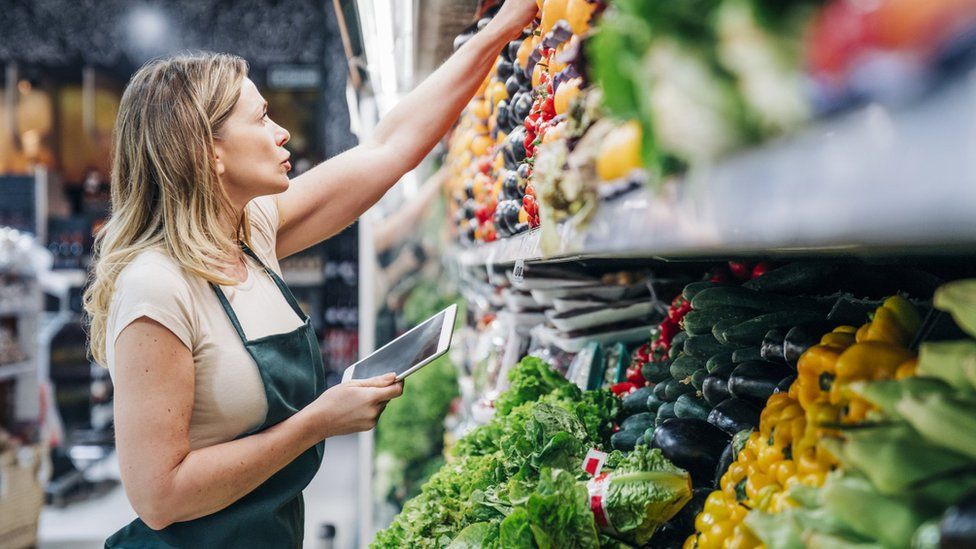ARTICLE AD BOX
 Image source, Getty Images
Image source, Getty Images
Retail giants are urging police forces across the UK to offer more protection to workers as concerns about their safety grow.
Bosses at Sainsbury's, Boots, M&S and Aldi are among dozens of firms to have signed a letter calling for assaults on staff to be better recorded.
It comes as research suggests that two in five retail workers are facing abuse from customers on a weekly basis.
The Home Office said that retail crime "will not be tolerated".
The letter, signed by more than 50 businesses, as well as several MPs, outlines a request for the policing minister to ensure assaults on service workers are recorded separately in police statistics.
The bosses of John Lewis, the Post Office, BT, Octopus and Ovo Energy have joined the call, with Esther McVey, former work and pensions secretary, also among the signatories.
Jo Causon, chief executive of the Institute of Customer Service, wrote in the letter that it is "disheartening" to have to report on the "unacceptable level" of abuse faced by workers in customer-facing roles again.
Research published by the Retail Trust on Monday found that almost half of shop workers surveyed feel unsafe at work.
The charity spoke to more than 1,600 staff from 200 companies such as Tesco, H&M and the Co-op.
About two-thirds of respondents said confronting a shoplifter had caused abuse, which might include being shouted at, spat on, threatened or hit.
Jane, a check-out supervisor from Mold in north Wales, told BBC Breakfast that she felt retail abuse was "more common now that it ever has been".
She described a "massive increase" during Covid lockdowns when staff had to introduce changes to the way customers were shopping like one-way systems or social distancing measures.
She said one shopper had stood "nose-to-nose" with her and threatened her verbally, which was "particularly threatening" at the height of the pandemic.
Retail worker Jane said she felt retail abuse was "more common now that it ever has been"
Since then, the increased cost of living has meant shoppers might be more frustrated when they get to the tills, particularly if they are asked for photo ID when buying restricted items, she said.
"Shopping isn't as fun as it used to be... everything's gone up in price for whatever reason and customers don't like it and the staff generally get the brunt of it."
The Retail Trust research also suggested that a quarter of workers did not report incidents, partly because of a poor response from police in the past. Separately, the Co-op said on Monday that it had recorded 300,000 incidents so far this year of shoplifting, abuse, violence and anti-social behaviour in its chain of shops.
It marks a 40% increase compared with the same period in 2022. In the majority of the 3,000 most serious cases, it said the police had failed to attend when requested.
A number of retailers have announced that they are investing in additional security or body-worn cameras for staff to combat violent behaviour.
Lidl, for example, announced last week that staff across its 960 UK stores would wear body cameras, although they will not be required for all workers.
Its boss said that the additional safety measures would cost £2m and that "retail crime is something that is impacting the whole industry".
According to the latest figures from the British Retail Consortium, incidents of violence and abuse had almost doubled on pre-pandemic levels to 867 incidents every day in 2021-22.
A spokesperson for the Home Office said: "It is completely unacceptable to threaten or assault shop workers. We have recently put aggravated sentences for assaults on shop workers into law, showing that these crimes will not be tolerated."
They said that the policing minister is "clear" that police should take a zero tolerance approach to crime, especially where violence is used.
They added that the recent Retail Crime Action Plan would see police attending more crime scenes and patrolling badly-affected areas.

 1 year ago
41
1 year ago
41








 English (US) ·
English (US) ·